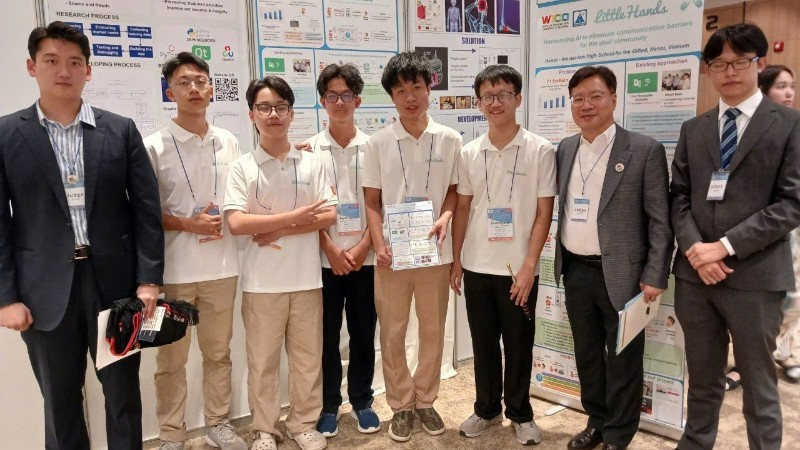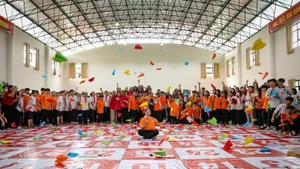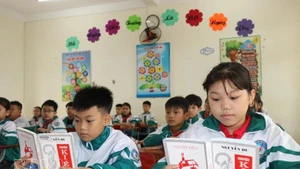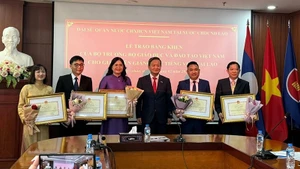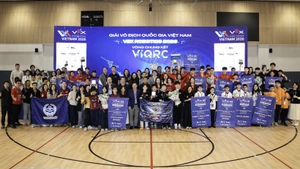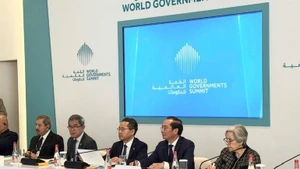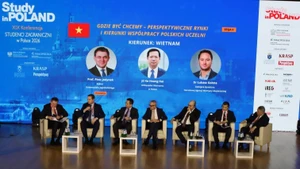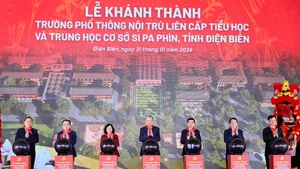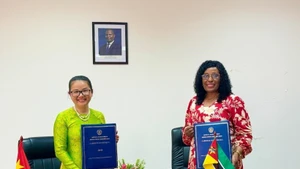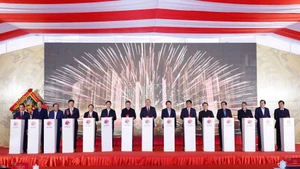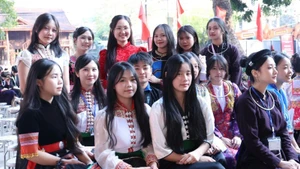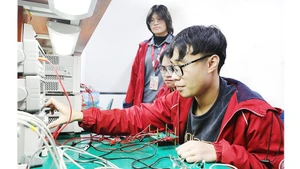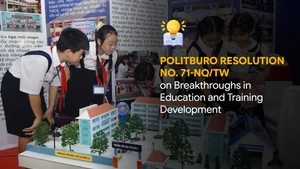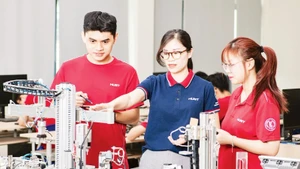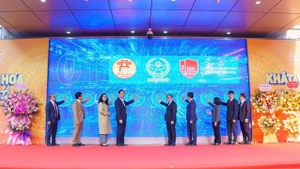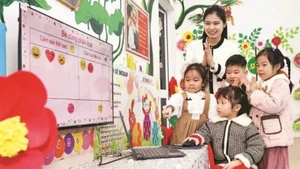A new generation of learners
Tran Thuan Hieu, a grade-11 student specialising in Informatics at Ha Noi –Amsterdam High School for the Gifted – scored 1,570 out of 1,600 in his first attempt at the SAT (a standardised test used by most US universities for admissions). He won third prize in the national Informatics competition, earned a Silver Medal at the WICO 2025, and collected several medals in national Informatics Olympiads.
Hieu is not the typical “study day and night” student and cannot study for long periods at a stretch, but when he studies, he gives it his full attention. Once among the weakest students in his class, he has managed to surpass his own limits. While he may not be the best in class, he might be the most consistent learner.
Nguyen Thanh Tung, Hieu’s form teacher at the Informatics-specialised class at Ha Noi–Amsterdam High School for the Gifted, remarked: “Hieu doesn’t overburden himself. He knows how to focus on his strengths. He maintains a good balance between studying, playing and resting. Most importantly, he always follows his own pace and learning style.”
Teacher Nguyen Thi Hong Lan (from Ngoi Sao Ha Noi Primary and Secondary School), who taught Hieu during lower secondary, still remembers the boy who was “sometimes against the tide”, but stood out for his independence and determination in learning.
Hieu is not an isolated case. A new generation of students is growing up in a redefined educational ecosystem, where STEM, research, creativity and project-based learning are no longer unfamiliar concepts.
Also in 2025, two students from Viet Duc High School (Ha Noi) won second prize at the International Science and Engineering Fair (ISEF) for their project on lithium battery recycling – an initiative born from their school’s STEM club.
At the 2025 National Artificial Intelligence Olympiad, the top 10 outstanding students honoured were all from general secondary schools across various regions. What they shared in common was early exposure to technology, STEM, and advanced academic projects.
Notably, many of these students come from public or non-specialised private schools – a reality that highlights how student potential does not depend on a school’s reputation, but on whether the system provides the right opportunities for growth.
Over the past three years, at the International Olympiad in Informatics, Vietnamese students have consistently ranked among the top, winning Gold and Silver medals. Youth innovation contests, STEM, and AI competitions have also seen remarkable breakthroughs from hundreds of students nationwide.
According to Professor and Doctor of Science Nguyen Dinh Duc, Chairman of the Council of the University of Engineering and Technology, if Viet Nam wants to integrate into the global education system, it cannot stick to outdated assessment methods. As the world shifts to “teach deeply, learn meaningfully”, uniformity is no longer the ideal. Modern education should not chase after marks or confine itself to the expectations of the majority. It must be flexible enough to nurture each student’s unique path while ensuring equal access to opportunities.
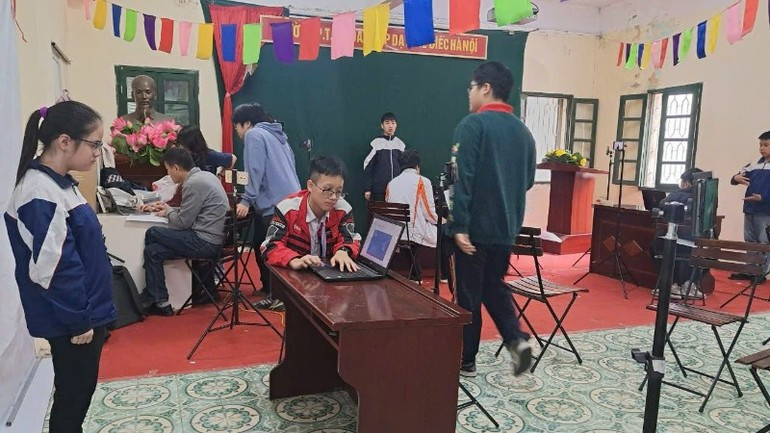
Accelerating the transformation of education
Teacher Nguyen Thanh Tung said that many students now learn out of curiosity, passion, and for their future – not merely for grades or honour boards. They clearly understand their strengths, actively explore new technologies, and confidently step onto the global stage through international competitions. This means that if the education system fails to keep pace, it could become a bottleneck.
At a broader level, Minister of Education and Training Nguyen Kim Son has emphasised: “Education and training are facing great demands and great opportunities. The larger the mission entrusted to the sector, the higher the requirements and expectations, and the more urgent the need for innovation.”
Teacher Nguyen Thi Hong Lan believes that today’s teachers are no longer just lecturers; they must be inspirers, creating a space where students can try, make mistakes, and discover themselves. This reality is posing a clearer requirement than ever: It is necessary to accelerate changes in education, from program content, assessment methods, teacher training methods to flexible learning policies. This is not just a technical reform roadmap, but a necessary step so that Vietnamese education does not miss a beat and keeps up with the generation that this education system is helping to shape.
